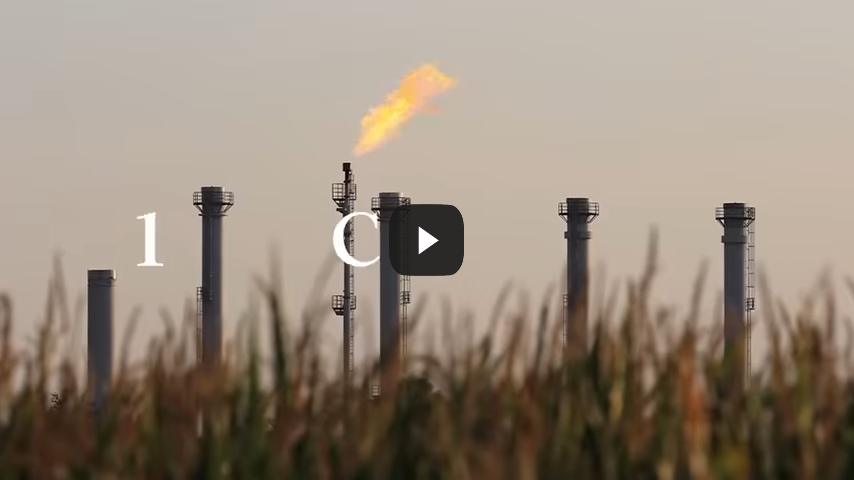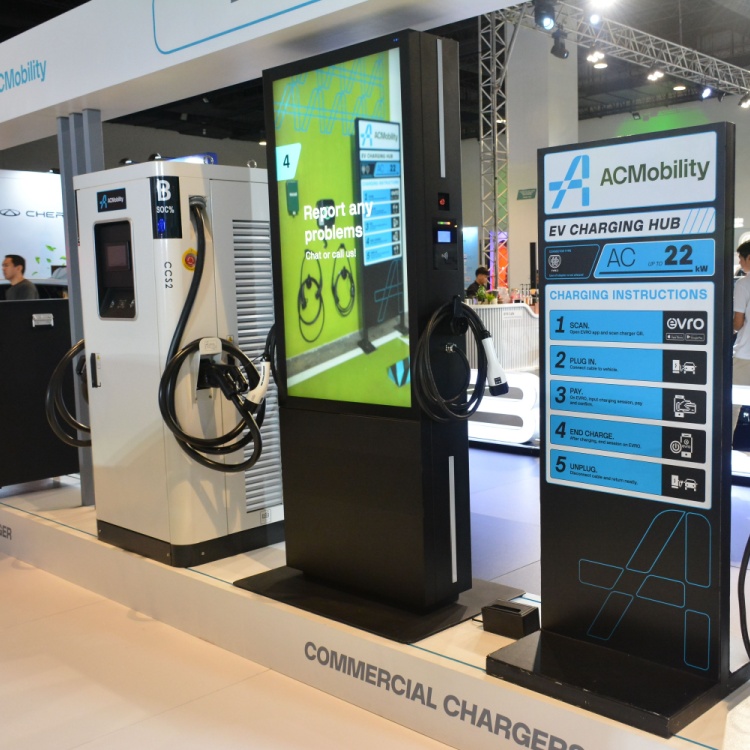How the War in Ukraine Is Pushing Europe To Go Green
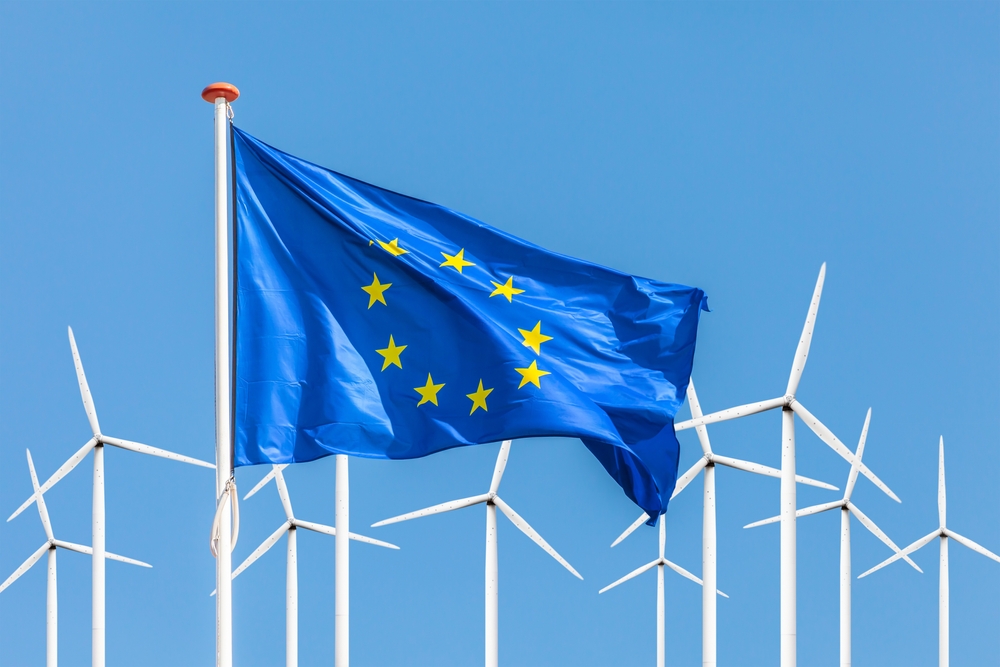
The war in Ukraine has forced Europe to end its dependence on Russian energy. Find out how the continent is taking a stand against petro-bullies by fast-tracking its transition to green energy.
The war in Ukraine has forced Europe to reassess its dependence on Russian energy, spurring legislation to ramp up the continent’s renewable energy capacity. Read on to learn how European nations are taking a stand against petro-bullies by accelerating their drive towards green energy.
A chokehold on Europe’s energy supply
Running through countries and under deep seas, Russia’s oil and natural gas pipelines hold immense power over Europe. Through Belarus and Ukraine, the Baltic Sea and the Black Sea, Russia’s pipelines supply 40% of the European Union’s natural gas and 27% of its imported oil.
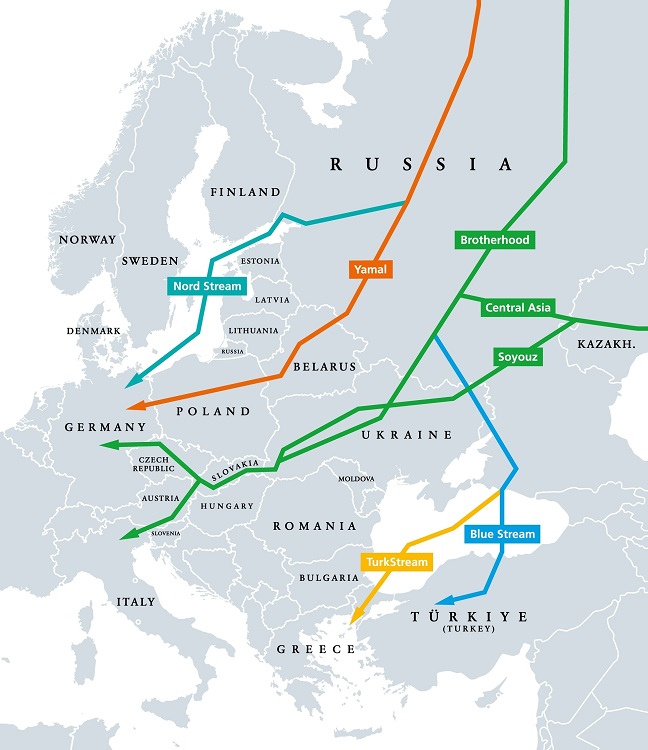
With Russia’s invasion of Ukraine, global gas prices skyrocketed above one hundred U.S. dollars a barrel for the first time since 2014. The war has made energy an even more valuable chess piece in the game of politics and power. Russia has reduced pipeline flows or cut off shipments altogether, leaving European utilities scrambling to find alternate supplies to stave off a looming energy crisis.
(Also read: War and the World’s Supply Chain)
A silver lining amid war
“The war is making it very clear that if you want to control your own fate, it’s better to prioritize renewables and end reliance on fossil fuels,” says Matthias Buck, European director for Agora Energiewende, a think tank for climate neutrality.
From March to September this year, 24% of the European Union’s electricity was generated by wind and solar. According to a study by climate change think tanks E3G and Ember, this record-breaking wind and solar energy production saved the European Union €99B in extra gas costs since the start of the war.
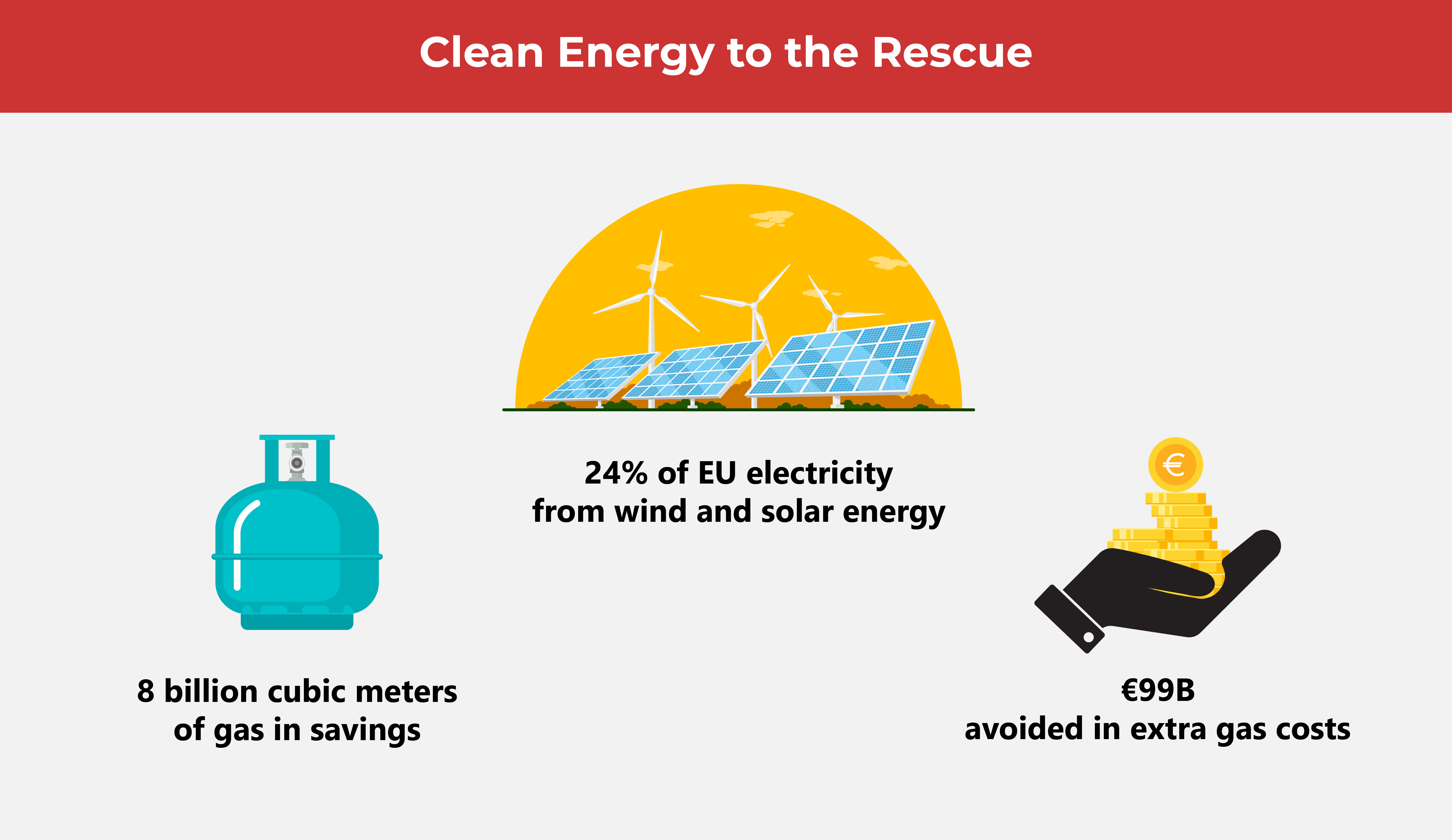
The study also revealed that nineteen member states of the European Union reached record highs in solar and wind energy generation, including Spain (35%), Italy (20%), Poland (17%), and France (14%). This unprecedented growth in renewable energy translated into more than eight billion cubic meters of gas in savings.
“EU energy ministers now have the opportunity to drive home the advantages of clean energy,” shares the authors of the study. “In addition to the climate benefits, accelerating deployment of cheap renewable energy will reduce Europe’s exposure to costly fossil fuels.”
In response to the global energy crisis sparked by the war in Ukraine, the European Commission presented the REPowerEU Plan, which aims to end the EU’s dependence on Russian fuels.
By conserving energy, diversifying energy sources, and rapidly accelerating the transition to clean energy with the appropriate investments and legal reforms, the REPowerEU Plan will bring clean energy to European homes and industries.
The REPowerEU Plan increases the 2030 renewables energy target from 40% to 45% of the overall energy mix. It also aims to bring online over 320 GW of solar photovoltaic by 2025 (more than double compared to 2020) and almost 600 GW by 2030.
(Also read: Here Comes the Sun: Solar Power Is Looking Bright)
Conflicts and crises make way for change
Looking back at world history, we see how conflicts and crises can fast-track energy transitions. In the 19th century, sails gave way to steam in warships, and coal transformed naval tactics, making vessels faster and more maneuverable. During the First World War, oil moved men and machines, from trucks and tanks to planes and submarines. By World War II, mankind witnessed the devastating power of the atomic bomb.
“In each of these cases, wartime innovations flowed directly to the civilian economy and ushered in a new era,” says McKinsey. “The war in Ukraine is different in that it is not prompting the energy innovation itself but making the need for it clearer. Still, the potential impact could be equally transformative.”
Despite economic inflation and never-ending supply chain challenges, most renewables are now more economical than even the cheapest coal. Renewable energy fights global warming, increases energy security, and protects us from volatile fuel prices. And in a world that has seen too many wars, clean energy could be a path to maintaining peace.
“No country has ever been held hostage to access to the sun. No country has ever been held hostage to access to the wind. They have not ever been weaponized, nor will they be,” United States Secretary of Energy Jennifer Granholm told the Sydney Energy Forum last July. “Our move to clean energy globally could be the greatest peace plan of all.”
As one of the Top 19 EMS companies in the world, IMI has over 40 years of experience in providing electronics manufacturing and technology solutions.
We are ready to support your business on a global scale.
Our proven technical expertise, worldwide reach, and vast experience in high-growth and emerging markets make us the ideal global manufacturing solutions partner.
Let's work together to build our future today.

